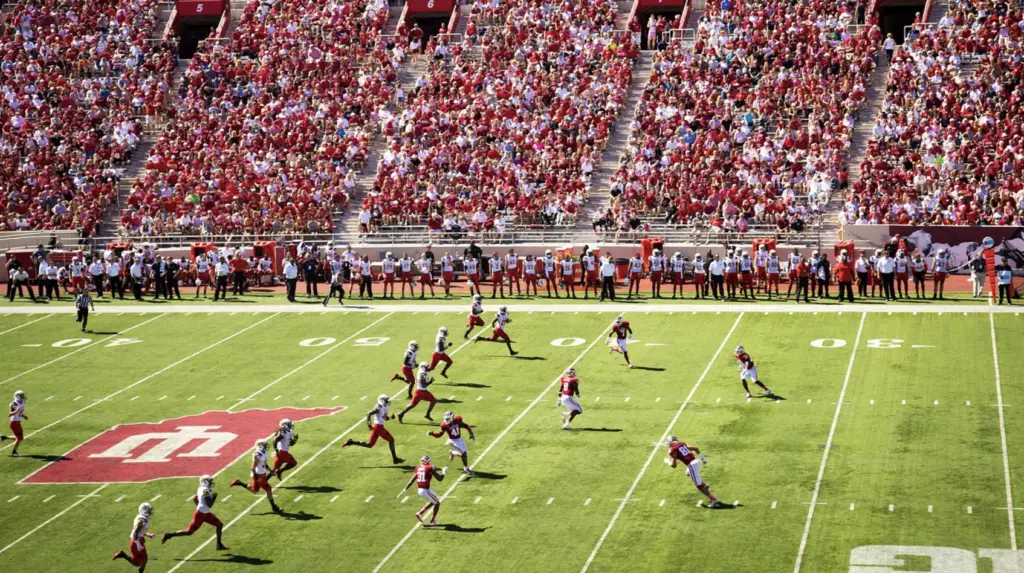Access to the Super Bowl – an event synonymous with sports, entertainment, and camaraderie – has often been the subject of discussion.
In recent times, the debate has centered around whether the Super Bowl should be made available for anyone to stream rather than limiting it to traditional broadcast avenues. This shift in focus raises various questions about the future of sports broadcasting and audience reach.
The Concept of Universal Streaming
First, let’s talk about the idea of universal streaming. This term is used to denote unrestricted access to content online with no geographical limitations. It’s a concept that has gained traction in recent years with the rise in online content platforms.
The Super Bowl, with its significance in American culture, has been proposed as a candidate for this model. One advantage to universal streaming is the potential increase in accessibility.
Sports fans across the nation and beyond could watch the Super Bowl without needing a cable subscription or being limited by geographic boundaries. The other side to this is the potential issue of revenue and how making the event freely available might impact this.
Economic Implications
There is no doubt that moving to a universal streaming model could have significant financial consequences. Traditionally, broadcasters pay substantial amounts for exclusive rights to air the Super Bowl, bringing in revenue through advertising and subscription fees.
However, one could argue that offering the Super Bowl as a universally available stream could potentially create new revenue avenues. For instance, through targeted advertisements and partnerships with online platforms. Weighing the potential gains against the possible losses presents an interesting dilemma.
The Fans’ Perspective
From the perspective of the fans, the potential benefits are quite clear. A universally accessible Super Bowl would remove several barriers that currently restrict viewership. It would allow fans who do not have access to traditional television or who are outside of the U.S. to partake in this major event.
Yet, how this shift would impact the traditional viewing experience remains
uncertain. For instance, consider the Super Bowl odds.
Today, many individuals take an active interest in these odds, contributing to their overall engagement with the event. If the Super Bowl were universally streamed, this engagement could potentially increase, though it could also be subject to changes in the online environment.
Considerations for Content Providers
While accessibility for fans is important, we must also consider the perspective of the content providers – the broadcasters. The shift to universal streaming could be viewed as a threat to their existing business model.
However, it might also be seen as an opportunity to expand their audiences and adapt to a rapidly evolving landscape. Finding ways to sustainably monetize
online broadcasts and maintain high-quality productions are just a few of the issues they might face.
Shifts in Viewer Habits

Next, it’s vital to recognize the changing habits of viewers. Increasingly, audiences are consuming content online via streaming platforms. This behavior is particularly pronounced among younger demographics.
If this trend continues, there might be a stronger case for shifting the Super Bowl and similar events to universally accessible streams.
The question remains how these shifts will impact the traditional charm associated with such events.
Technological Feasibility
From a technical standpoint, streaming the Super Bowl universally would require considerable infrastructure. With millions of potential viewers, the demand for servers could be extreme.
Issues of quality, latency, and reliability would need to be addressed to ensure a seamless viewing for all.
Nonetheless, advancements in technology and increased investments in digital
infrastructure might make this a feasible prospect.
Legal Implications
Legal aspects could also play a significant role in this discussion. Broadcast rights, copyrights, and licensing agreements are all factors to consider when contemplating a move to universal streaming.
Additionally, potential conflicts with existing agreements and the challenges of
negotiating new ones could complicate matters further.
Looking Ahead
While making the Super Bowl universally available to stream is an idea that holds considerable promise, its implementation is far from straightforward. Multiple perspectives, ranging from the fans to the broadcasters and from technology providers to the legal domain, need to be considered.
Yet, given the changing landscape of content consumption and the increasing
demand for accessibility, this could be an avenue worth exploring for the future.
Conclusion
The question of whether the Super Bowl should be universally available for streaming is complex. It involves a careful consideration of the potential advantages and drawbacks. From the fans’ perspective, it might open doors to a more inclusive and accessible viewing, but the economic implications cannot be ignored.
Furthermore, the impact on the overall viewing culture and engagement, like with Super Bowl odds, is something that would need to be taken into account. In the end, the decision lies in the hands of the stakeholders, and only time will tell if this shift will ever occur.

